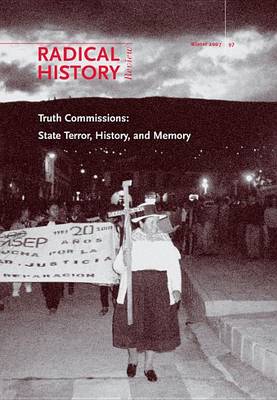This special issue of Radical History Review looks at the different kinds of history produced by truth commissions organized to investigate political violence, state terror, and human rights violations around the globe and examines how these histories elide or confront social inequality and political violence. The essays consider the tensions implicit in the multiple mandates of truth commissions: to establish historical truths, to recognize the experiences of victims, to effect social and political reconciliation, and to reestablish the legitimacy of the nation-state at a time of market-driven globalization. The issue also addresses difficulties faced by the commissions, such as limitations on the use and nature of evidence, oral testimony, and archival documentation.
Comparative in nature, this collection includes essays on Chile's long history of amnesties, pardons, and commissions organized to uncover past episodes of political violence; the dissemination and use of the historical findings of the Guatemalan Commission for Historical Clarification; and internal tensions in the South African Truth and Reconciliation Commission, which sought to recover the memories of the victims of apartheid. Several shorter essays offer reflections on U.S. commissions related to the country's history of racial violence, Cold War imperialism, and Vietnam War atrocities and on the findings of the 9/11 Commission report. Contributors. Felipe Aguero, Sally Avery Bermanzohn, Alejandro Castillejo-Cuellar, Grant Farred, John J. Fitzgerald, Greg Grandin, Thomas Miller Klubock, Elizabeth Lira, Brian Loveman, Mary Nolan, Elizabeth Ogelsby, Paul Ortiz, Kimberly Phillips-Fein, Charles Walker
- ISBN10 0822366746
- ISBN13 9780822366744
- Publish Date 1 January 2007
- Publish Status Active
- Publish Country US
- Imprint Duke University Press
- Format Paperback (US Trade)
- Pages 184
- Language English
